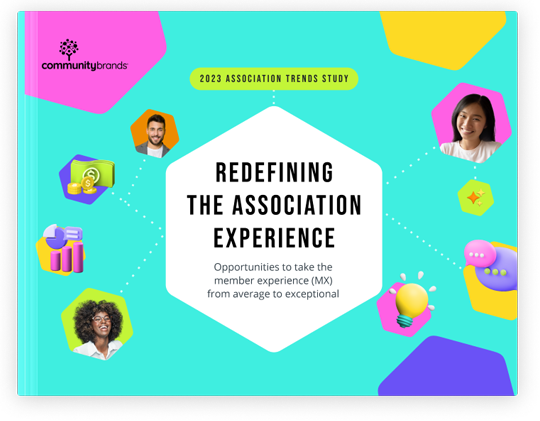Market research can be a great asset to your association. It helps you to better understand your target audiences so that you can market to them more effectively and provide them with greater value.
But how can you conduct marketing research efficiently and use it effectively when you have a small staff? To conduct market research in an optimal way, you must understand what market research is, the role of market research data, and how to collect and use this information in decision-making to positively impact your association’s goals.
Let’s look at some key aspects of association market research.
What is marketing research for associations?
Typically, market research for associations involves the planning, collection, and analysis of data relevant to decision–making. It also includes communication of the results of the analysis to association management and other leaders.
What is the role of marketing research data for associations?
Market research data fulfills three key functional roles: descriptive, diagnostic, and predictive:
- The descriptive function includes gathering and presenting statements of fact about your target audiences.
- The diagnostic function involves the explanation of data or actions of your target market.
- With the predictive function, your association answers questions that help you to take advantage of new opportunities in an ever-changing marketplace.
As you conduct market research, try to balance these three areas to provide the highest-quality and most useful data and insights for your decision-making.
How do you conduct high-quality marketing research for your association?
To conduct high-quality marketing research, it’s important to understand what questions you’re trying to answer. Here are key questions that can be helpful to consider as you begin your marketing research and data collection:
- Who are our target audiences? Members? Volunteers? Donors? Sponsors? All of the above?
- What are the issues and concerns most impacting each target audience? How can we translate this knowledge into action?
- What programs and services provide the most value to our target audiences? What opportunities exist for our association and how can we take advantage of these opportunities?
- How can we best modify our programs and services to more effectively target our audiences?
With these questions in mind, here are six great ways to collect and use marketing research data for your association:
1. Send periodic surveys.
Send surveys to each of your target audiences to gather their thoughts about your association’s programs and benefits. For example, you might send a member survey to learn how well your member benefits and programs are meeting members’ needs. You might send a separate survey to volunteers to uncover ways to improve your volunteer program. You might send a post-event survey to sponsors to understand which sponsor opportunities they value, and which could use more work.
2. Conduct focus groups.
For each of your target audiences, invite a diverse group of people to meet with you (in person or online) so that you can find out more about their needs and how you can deliver greater value for them.
3. Read what your target audiences are writing.
Keep an eye on what your members, volunteers, and others are writing on social media and in your online community. Participate in conversations to encourage more discussion and feedback.
4. Look at association and membership trends research.
Look into research about associations and members to learn more about what’s happening in the association industry and what members value most. For example, association trends research by Momentive Software offers information about member values, member engagement trends, and more, plus recommendations on how to put the research to work for your association.
5. Dig into your association’s data.
Your association’s staff might be small, but the data you collect in your association management software can give you big insights to help you make more informed decisions for your organization. You can run reports for everything from membership and accounting to events. The insights you gain from these types of reports can make it easier to plan programs, make improvements, find new opportunities, and deliver a better experience for all of your audiences.
6. Review marketing data regularly.
Marketing research doesn’t do any good if you don’t put it to work. So, be sure to regularly review survey and focus group feedback as well as other data you’ve collected and incorporate your learnings into your organization’s strategies. Here are a few tips for putting your marketing data into action:
- Schedule a meeting with your team to go over the data and make recommendations about how you can incorporate feedback into your marketing and other activities.
- If you need more details for some of the responses from your target audiences, follow up with them. Just be aware, based on their feedback, of whether you think they’ll be open to additional contact from your organization.
- For any individuals from your target audiences who indicate changes your organization could make to improve their experience with your organization, consider presenting them with your ideas for improvements and ask what they think.






